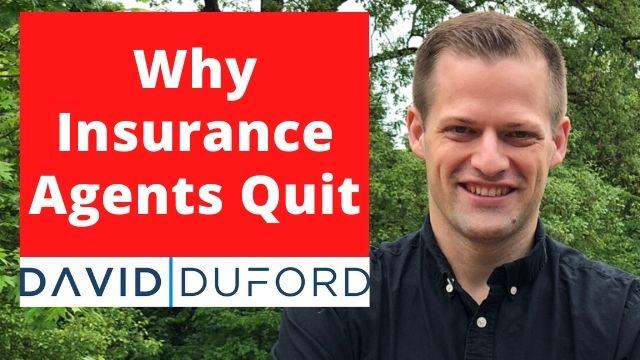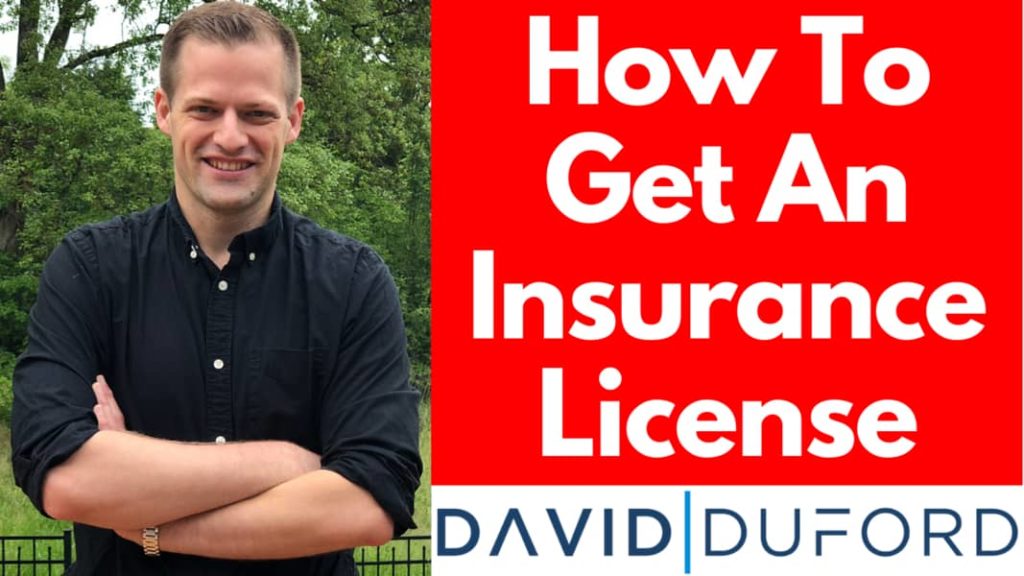Are you looking to enter any kind of insurance telesales environment? Are you hoping to avoid face-to-face sales and sell insurance virtually from home (aka over the phone)?
Then, you’re in the right place!
This article will cover my top seven insurance telesales tips to help you master any telesales insurance presentation.
My name is David Duford, owner of the Duford Insurance Group, where I train and recruit agents to become top producers nationally in final expense, Medicare, and annuities both over the phone and face-to-face.
The seven tips below are representative of the bigger issues that I run across. Keep reading to find out what you need to be aware of AND how you can fix any of these problems.
Quick Navigation Links
Bonus! – Record Yourself
If you want to identify where your problems are, first of all, you’re going to have to accept that you make mistakes you aren’t aware of. This is especially true of agents already selling or thinking about selling any insurance telesales product over the phone.
That’s why my first piece of advice is to record yourself! Doing so might seem cringey at first, but this is the single most powerful way to improve quickly. If you’re embarrassed about showing your mentor, get over it.
Listening to how you sound over the phone is a surefire way to get good at selling any kind of insurance. Trust me; you will sound different from what you expect. And that’s precisely why this first bonus tip is essential.
Tip #1 – Nail Your Opener
The first five to ten seconds of your opening script are absolutely imperative to nail. Done right, your prospect will actually listen to your presentation.
It’s not as straightforward as face-to-face insurance selling. You don’t have to be Mr. Dynamic or charismatic prospecting in person. You just make eye contact, shake hands, smile, do your thing. And usually, you can get in the door with just that.
But over the phone, at any instance where your client feels a little anxious, disturbed, or bothered, they can hang the phone up. It’s how you execute the opening that mostly determines how easily your prospect might hang up.
So, How Do You Nail the Opening?
Well, first off, you need to listen to how you sound. It’s not so much about what you say (although that is important).
Every great insurance telesales agent that I’ve coached or spoken with are killers when it comes to their enthusiasm and tonality.
They sound interesting and intriguing—the sort of people you can’t help but listen to. They do not sound boring, monotonous, or slow.
And this is where recording yourself comes in handy. You might not think it, but in some respects, you probably do sound dull or unenthusiastic.
Make sure, above all else, that you open your presentation up like a boss every single time.
If you goof this up, if you don’t stay on script, if you don’t deliver in the way that I’ve described, people will say, “This guy’s kind of strange. He’s weird. I don’t know about him.”
They’ll think the worst and then hang up.
Tip #2 – Utilize a Virtual Business Card
Not right at the beginning, but in the process of building rapport and introducing yourself, I recommend using the Haystack App. Have a quick look on Google, and you’ll find it.
It’s essentially a digital business card. You fill it out ahead of time. Upload a photo, your contact information, and then text it to your prospects. It’s a fantastic way of adding some real value to an over-the-phone conversation.
Potential clients get to see you and find out where you’re licensed. Not to mention, it makes the whole interaction a LOT easier, and it helps differentiate us from the other telemarketers or agents that don’t use it.
Plus, quite a few clients will already be looking you up Google to make sure everything checks out. So why not help them verify you’re legitimate? That way, they’ll think, “Okay, cool. This guy works for whatever, and he’s real.”
Tip #3 – Go Deeper Than Deep
Buck, one of my agents, once said that during the pre-qualification and fact-finding stage, you can get straight to the point if you’re selling face-to-face. And that’s true. There’s no need to spend a lot of time going really deep into building rapport and digging into why the insurance prospect is interested in insurance.
There’s something about a face-to-face presentation that inherently builds more rapport. We see the person, we shake their hands, make eye contact, et cetera.
However, you cannot depend upon in-person social interactions if you’re selling over the phone. Instead, you have to find another way to build understanding with your prospect. And one way to do this is to dig deeper during the rapport and pre-qualifying stage.
Time and again, the big problem that needs to be fixed is deeper rapport, building a better connection, and also building more depth within the pre-qualification stage.
It’s a recurring issue I come across when agents request I analyze their calls. But I don’t make anyone feel bad about this. I simply review the call and offer constructive feedback on what needs fixing.
And more often than not, it’s rapport building. Our clients have to see the hearse backed up against the front porch (which is harder to do over the phone). So you have to go deeper intentionally.
Now, How Do We Go Deeper?
Rule of thumb is always to question everything.
Question any statement that seems like there could easily be more to it, such as, “Oh, yeah. Losing my job during COVID has been crazy, man.”
That’s a little different than the typical chit-chat about the weather that doesn’t mean anything.
Respond considerately. Ask them why did they lose their job? How has it affected them? Is their family okay?
Then do the same during the pre-qualification stage. What happens tomorrow, Mr. Prospect, if you die? Who will pay for your funeral? And if they start squirming in their seat and give you a partial response, ask them how that question makes them feel?
This is not optional. You cannot skirt around going deep.
Building a more emotional connection with your prospect shows that you care and want what’s best for them. Not to mention, in this state, they’ll be more likely to buy your product.
Tip #4 – Eliminate Distractions
Does everything make sense so far? My next tip involves eliminating distractions. During any part of your script where you’re explaining a potentially complex concept, you need to ensure you’ve got your prospect’s attention. Your pitch is pointless if no one’s listening, right?
That’s why my advice is to insert little temperature checks that help you make sure (a) the client is engaged and (b) they’re on board with what you’re saying. Did you notice how I added a couple in the paragraph above?
This strategy is a must over the phone. There’s no video. You’re not there in person. You can’t see the prospect.
Your client could be sitting down for all you know with their 55-inch screen TV watching Steve Harvey, The Price is Right, or Jerry Springer. Perhaps, a delivery guy turns up with a package to sign, or the neighbor’s dogs are barking at the kids next door, whatever. Those constant distractions are what you don’t see.
This is why you have to adjust your script to ensure the prospect is still engaged. But don’t be too obvious about it. It’s best used during longer explanatory sections where you’re talking, but they haven’t responded for 20 seconds or so.
Does that sound right to you? Do you have any questions? What do you think?
Anytime you’re asked a question, you can’t help but answer it. It demands your attention. And it’ll help bring people who are getting off trackback to you.
But it doesn’t end there. You have to pay attention because you can hear when people aren’t listening. They’ll say, “Yeah, makes sense.” But they’re not emotionally engaged. So you need to listen out for that as well.
You’re certain to lose prospects if you don’t, especially as you start to explain more complex topics. What’s the difference between term and whole life, for instance. Why is your product superior?
The more conceptual you get, the more people disengage. Do you agree? =)
Tip #5 – Paint Pictures
When you’re explaining, comparing, or contrasting how your product works, it’s a great idea to help your client visualize the issues you’re raising.
Plus, it’s easy to do. Just start by saying, “Imagine if… picture this…” You should be using those two words a multitude of times throughout the presentation.
For instance, if I’m trying to explain the impact of Colonial Penn’s two-year wait, I’ll say, “Picture how your family would feel if you had this Colonial Penn plan, this guaranteed acceptance plan, and you suddenly died before your cover came into full effect. Imagine what they would have to go through. Tell me, how does that situation make you feel?”
If you can say these things, their own mind will do the work for you. People can’t help it.
Remember, we’re not there in person. We can’t show them anything. We don’t have any props. We don’t have any handouts. And as I’ve said above, they’re probably looking at something else while they’re listening to you. So you have to command them to think visually.
Doing so makes this process that much more tangible. You have to create a more valuable presentation that helps the client connect with what you’re saying.
Tip #6 – Tell Stories
There’s a reason why the New Testament and Jesus are popular. Jesus knew how to describe the big concepts that are hard to understand. Think about all the parables and ideas from the Bible—so many powerful stories that have stayed with us forever.
And that’s exactly what we, as agents, want to do as well. Whenever you’re trying to make a conceptual point, explaining a story or event from a past client will drastically help get your point across.
For instance, there is an agent, I think at North Star, who talked about the top producer there. And I think he said this agent incorporates more than ten stories into every call. I probably do about five or six. So it’s definitely worth thinking about where you can add stories into your script.
If you’re still new at the game, go online and search for David Duford’s insurance stories. I’ve shared tons of videos, articles, posts, etc., describing situations with past clients and agents.
You’re more than welcome to use any of those stories and just say, “Hey, my friend in the business told me this story about…” It’ll create the exact same effect.
But, What Stories Should You Tell?
Well, you want to highlight situations where people purchased the wrong type of cover and things went wrong. So many people don’t realize the finer details of their insurance plan, such as waiting periods that prevent coverage from coming into full effect, premium price increases, etc.
Alternately, stories about people passing away without insurance and placing the burden of final expenses on their family are also a good addition.
The more real-life situations you describe, the more you’ll connect with your client.
Tip #7 – Closing Depends On Your Opener
Then lastly, how well you close is dependent upon how well you open.
So many producers love making videos about how to close, especially closing hard. There’s some sort of mystique, even romance surrounding a hard close. But in my experience, it’s not real!
If you’re not getting the sale, the problem is less to do with your close and more to do with how you open. You probably didn’t nail your opener or connect with the client well enough.
This is why I want to reiterate here how important opening well is. If you can open well, you can go deeper like I was describing during the pre-qualification and rapport building stages.
Simply put, over the phone, closing is not a big deal.
In fact, I teach my agents only one closing strategy: Good, Better, Best; which one works for you?
You don’t need 20 different closing strategies. One is enough.
The biggest reason a prospect won’t buy from you is because they don’t trust you. And trust needs to be built from the moment they answer the phone, not right at the end.
If you’re thinking, “What about when prospects say they need to talk to their kids or pray to their pet rock before making a decision?” That’s BS. It’s not real.
The problem was that you didn’t create enough trust between you and them. The last thing you need to do is waste time coming up with some new close that honestly does not matter.
Bottom Line
And that concludes my seven top tips for selling more policies. Let’s go over them one more time.
-
- Nail Your Opener: Stick to your script and make sure it’s well-rehearsed.
-
- Utilize a Virtual Business Card: The Haystack App is a must-have. Start using it right away!
-
- Go Deeper Than Deep: Connect with your client on an emotional level.
-
- Eliminate Distractions: Does everything make sense so far?
-
- Paint Pictures: Help your client visualize the concepts you’re trying to explain.
-
- . Tell Stories: Real-life stories add urgency and emotional context to everything.
-
- Closing Depends On Your Opener: Don’t go off on a tangent coming up with new closes.
I hope you’ve enjoyed this article and have a better understanding of how to improve your prospecting technique over the phone.
If you’re new to the industry, I put together a Free Insurance Agent Resource Guide specifically to help new agents like yourself get started.
Plus, if you haven’t checked out how my agency works, there’s more information on my FAQ page.
Thanks for reading!


January 03, 2023

January 03, 2023

January 03, 2023
